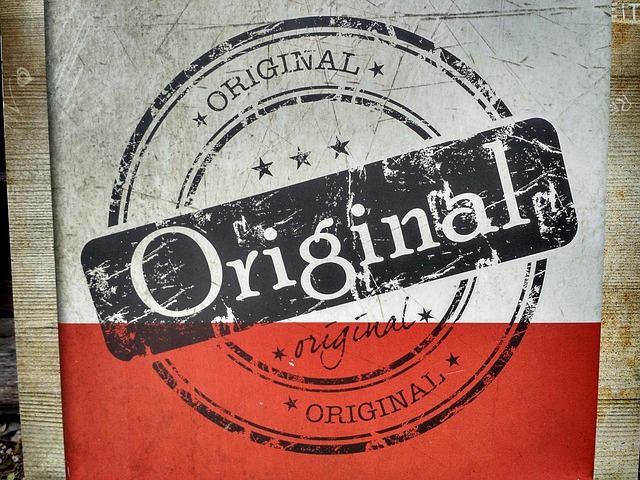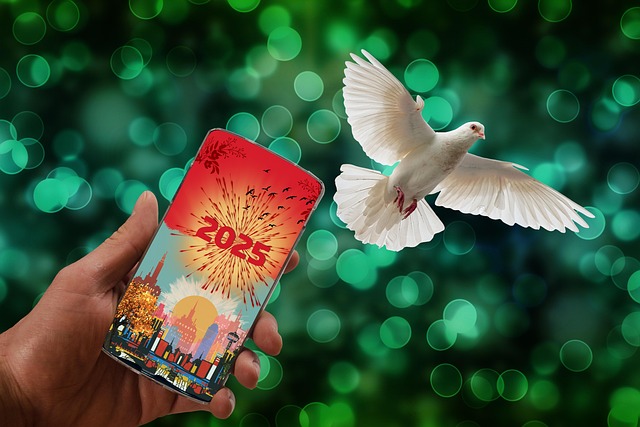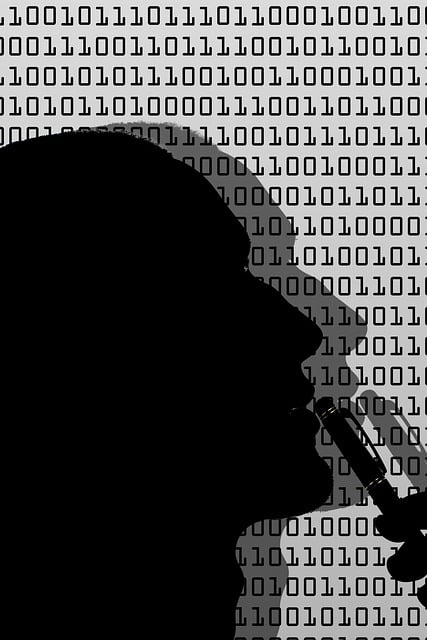

Parece que la autenticidad y la originalidad se han vuelto un problema colectivo para quienes navegamos por las esferas digitales, cada día más invasivas en nuestras vidas. Hoy, es difícil ver a alguien sin la potente computadora de mano, pues el teléfono, tal como lo conocieron las pasadas dos generaciones, dejó de serlo al expandir las funcionalidades.
Y es que, con la convergencia de las tecnologías de la información, además de haber desplazado a excelentes dispositivos, ahora también amenaza con relegarnos a ser estorbos si no nos adaptamos a ellas.
Hace tiempo que lidio con esto, y de seguro, ustedes también. Imaginen si esto es así, que, en el párrafo anterior, me detuve a decidir si lo cerraba con “estas o ellas”. Quizás esté enloqueciendo.
Bueno, el tiempo lo dirá.
Mientras tanto, agradezco a mi amigo @emiliorios por traer a la tarima un tema tan fascinante y actual en su último post: [Auténticos, Originales, Irrepetibles... ¿Podemos serlo? -La importancia de sabernos Únicos](https://hive.blog/hive-131951/@emiliorios/autenticos-originales-irrepetibles-podemos-serlo-la-importancia-de-sabernos-unicos-esen). De su lectura comparto lo acertado de su duda al contrastar el existencialismo de Sartre con la postura psicosocial de Fromm. Sin pecar de ser políticamente correcto, ambos ven el mismo asunto, pero con anteojos sucios.
Valdría primero preguntarse qué significa ser auténtico y qué tan equivalente es a ser original. Además de concertar sobre la libertad. Pero con toda intención, lo dejaré a vuestra interpretación, mientras divago sin intención de convencerlos de mis puntos de vista, que podrían estar errados. Comencemos…
Si bien Sartre postuló que los hombres están condenados a ser libres, y, por ende, son responsables de elegir bien sus actos para que sus vidas sean significativas, lo que los hace únicos. Por otro lado, Fromm acotó a los hombres como el resultado del entorno e influencia social, de tal manera que perdieron su esencia original, y, en consecuencia, no son totalmente libres, ni distintos de los demás.
¡Ven el porqué de la duda razonable de @emiliorios ante los planteamientos de dos grandes pensadores!
Uno y otro, inexactos con sus pretensiones filosóficas, vapuleados por lo cotidiano, y que, bien, resolvió el sabio español Ortega y Gasset con su célebre sentencia: “Yo soy yo, y mis circunstancias”.
¿Quién podría jactarse de ser 100 % genuino y libre? ¿Será que acaso la libertad está determinada por lo auténtico e irrepetible, o viceversa?
Deduzco que nadie... puesto que la condición humana, además de ser consciente, se da por el contexto. ¡Acaso un pez puede vivir fuera del agua! Y con respecto a lo auténtico (genuino) y la libertad, ha de entenderse como procesos continuos durante la existencia misma. ¿Quién vive sin el aire que respira? Se es entonces, al igual que el pez, esclavo del medio que los sustenta. Somos auténticos, sin duda, a pesar de las muchas similitudes guardadas con los congéneres, y relativamente libres entre nosotros, al actuar bajo las influencias de incontables factores.

Imagen de Gerd Altmann en Pixabay
¡Caramba, me duele la cabeza, y la incertidumbre aún permanece!
Más cuando considero el serio asunto de la cosificación de la vida desde la perspectiva materialista. Aquí quiero abordar, aunque sea en la superficie, el impacto cada vez mayor de la inteligencia artificial sobre nosotros.
Saben, hace un par de años, yo escribía en paralelo en una plataforma similar a Hive. En más de una ocasión, allí, alerté sobre los peligros implícitos en la IA. Y, en parte, tuve razón. Con la irrupción de ChatGPT, el administrador de la plataforma informó la decisión de no apoyar a los autores por la supuesta irrelevancia de los contenidos humanos. Una decisión, además de infeliz, nefasta. Más temprano que tarde, el desierto apareció en aquella, entonces, pujante comunidad. Claro, ese fue el puntillazo final al destino previsible, marcado por su diseño.
¿Y qué relación tiene esto último con lo genuino y la libertad del ser humano?
Creo que mucho...
¿Cuántos aquí en Hive somos escritores 100 % originales y libres de la IA?
Con la mano en el corazón...
Sospecho que ninguno. ¡No me malinterpretéis!
¡No me refiero a los abusivos que sin esfuerzo usan a los chatbots para crear contenido, abrogándose la autoría! Es un comportamiento deleznable que debe combatirse, no porque usen la IA, sino por la intención de defraudar nuestro reconocimiento.
Me refiero a que tan puros y originales son nuestros escritos, en la forma como en el fondo. ¿Y qué tan cuestionables son bajo estos prismáticos?
Imagino al mismo Miguel de Cervantes, sentado en una mazmorra, escribiendo el borrador del Quijote sin el Vocabulario de Nebrija. ¿Qué no habría escrito asistido por una IA? Tal vez, la IA habría sido un freno para su caudal creativo. Curioso, no. Sin libertad de movimiento, el genio fue capaz de dar inicio a una obra maestra, original: el inicio de la literatura moderna.
No os asustéis. No sugiero que escriban a la antigua: a puño y letra con una pluma fuente para huir de las IA. Desaprovechando los algoritmos ortográficos y gramaticales de los modernos procesadores de texto. ¡No me creáis tan retrógrado! Al contrario, quiero resaltar que el genio de la creatividad está en uno mismo, más allá de las herramientas disponibles.

Imagen de Gerd Altmann en Pixabay
Por ejemplo, García Márquez y Vargas Llosa, aunque no usaron IA para escribir sus obras maestras, sí contaban entre sus utensilios de trabajo máquinas de escribir y sendos diccionarios, además de cientos de libros que releían con constancia. Cerebros brillantes y disciplinados en acción creativa. Otra vez, imagínalos en estos días, compitiendo por sobresalir ante una feroz competencia asistida por la alta tecnología.
¿Quién podría discutir la originalidad de sus legados?
Entonces, entiendo la preocupación genuina por perder lo que nos distingue. Sí, la IA podría constituirse en una amenaza para la originalidad y la libertad, pero también podría erigirse en el trampolín que nos permita explorar otros estadios de la imaginación.
Quizá estas divagaciones se hayan desviado un poco de la intención primordial. Si es así, disculpadme. Creo que uno también tiene derecho a alucinar de vez en cuando. Por cierto, un comportamiento que la IA ha heredado de nosotros, porque, en realidad, luego de tanto pensarlo, esta se ha convertido en nuestra imagen y semejanza. Confío en que no transgredan lo sagrado en nosotros.
En definitiva, en línea con la especulación de Sartre, lo original y genuino surgen de una decisión —un ejercicio de libertad—, sin que el uso de inteligencia artificial lo comprometa como apéndice de la humanidad. Por lo tanto, no os limitéis, explorad y vivid, busquen ser sinceros, honestos con vosotros mismos, que los otros, similares en esencia, también están condenados a verlo, y actuar en consecuencia.
Saludos, con el favor de Dios, nos leeremos pronto…

Un breve ensayo original de @janaveda
La imagen de portada de Werner Moser en Pixabay
¡Cansado! ¿Ya no te satisfacen las redes sociales tradicionales?
Entonces, te invito a conocer Hive presionando aquí.
Únete a nuestra comunidad global, en donde la libertad sin censura en nuestro norte.



Authenticity in the Digital Age: Freedom, Originality, and the Shadow of AI
It seems that authenticity and originality have become a collective challenge for those of us who navigate the digital sphere, which is becoming increasingly invasive in our lives every day. Today, it's hard to see anyone without a powerful handheld, as the phone, as the past two generations knew it, ceased to be so as its functionality expanded.
And with the convergence of information technologies, in addition to having displaced excellent devices, it now also threatens to render us a nuisance if we don't adapt to them.
I've been grappling with this for a while, and I'm sure you have too. Imagine if this is true, that in the previous paragraph, I paused to decide whether to close it with "these or them." Maybe I'm going crazy.
Well, time will tell.
In the meantime, I thank my friend @emiliorios for bringing such a fascinating and timely topic to the table in his latest post: [Authentic, Original, Unrepeatable... Can We Be It? -The Importance of Knowing We Are Unique](https://hive.blog/hive-131951/@emiliorios/authentic-original-irrepeatable-can-we-be-it-the-importance-of-knowing-we-are-unique-esen). From your reading, I share the accuracy of your doubt in contrasting Sartre's existentialism with Fromm's psychosocial stance. Without being politically correct, both see the same issue, but through dirty glasses.
It would be worth first asking what it means to be authentic, and how equivalent it is to being original. In addition to agreeing on freedom. But I will intentionally leave that to your interpretation, while I digress without intending to convince you of my views, which could be mistaken. Let's begin...
Although Sartre postulated that men are condemned to be free, and, therefore, are responsible for choosing their actions well so that their lives are meaningful, which makes them unique. On the other hand, Fromm defined human beings as the result of their environment and social influence, to the point that they lost their original essence, and, consequently, are not totally free, nor different from others.
See why @emiliorios has reasonable doubts about the approaches of two great thinkers!
Both of them, inaccurate in their philosophical pretensions, battered by everyday life, and which the Spanish sage Ortega y Gasset successfully resolved with his famous dictum: "I am me, and my circumstances."
Who could boast of being 100% genuine and free? Could it be that freedom is determined by what is authentic and unrepeatable, or vice versa?
I gather that no one... since the human condition, in addition to being conscious, is determined by context. Can a fish live out of water? And with respect to authenticity (genuineness) and freedom, they must be understood as continuous processes throughout existence itself. Who lives without the air they breathe? Then, like a fish, they are slaves to the environment that sustains them. We are authentic, without a doubt, despite the many similarities we have with our fellow creatures, and relatively free among ourselves, acting under the influence of countless factors.

Image by Gerd Altmann on Pixabay
Wow, my head hurts, and the uncertainty remains!
Even more so when I consider the serious issue of the reification of life from a materialist perspective. Here, I want to address, even if only superficially, the growing impact of artificial intelligence on us.
You know, a couple of years ago, I was writing in parallel on a platform similar to Hive. On more than one occasion, I warned about the dangers implicit in AI. And, in part, I was right. With the emergence of ChatGPT, the platform's administrator announced the decision not to support authors due to the supposed irrelevance of human content. A decision that was not only unfortunate but disastrous. Sooner rather than later, the desert appeared in that then-thriving community. Of course, that was the final blow to the foreseeable destiny, marked by its design.
And what does this have to do with the genuineness and freedom of the human being?
I think a lot...
How many of us here at Hive are 100% original writers free of AI?
Hand on heart...
I suspect none. Don't get me wrong!
I'm not referring to the abusive people who effortlessly use chatbots to create content, claiming authorship! It's despicable behavior that must be combated, not because they use AI, but because they intend to defraud us of our recognition.
I'm referring to how pure and original our writings are, in form and substance. And how questionable are they under these prisms?
I imagine Miguel de Cervantes himself, sitting in a dungeon, writing the draft of Don Quixote without Nebrija's Vocabulary. What wouldn't he have written with the assistance of an AI? Perhaps the AI would have hindered his creative flow. Strange, no. Without freedom of movement, the genius was able to begin an original masterpiece: the beginning of modern literature.
Don't be alarmed. I'm not suggesting you write the old-fashioned way: in longhand with a fountain pen to escape AI. It's wasting the spelling and grammar algorithms of modern word processors. Don't think I'm so backward! On the contrary, I want to emphasize that the genius of creativity lies within oneself, beyond the tools available.

Image by Gerd Altmann on Pixabay
For example, García Márquez and Vargas Llosa, although they didn't use AI to write their masterpieces, did have typewriters and dictionaries among their work tools, in addition to hundreds of books they reread constantly. Brilliant and disciplined minds in creative action. Again, imagine them these days, vying to stand out in the face of fierce competition aided by high technology.
Who could dispute the originality of their legacies?
So, I understand the genuine concern about losing what sets us apart. Yes, AI could pose a threat to originality and freedom, but it could also serve as a springboard that allows us to explore other stages of the imagination.
Perhaps these ramblings have strayed a little from the primary intention. If so, please excuse me. I believe one also has the right to hallucinate from time to time. Incidentally, this is a behavior that AI has inherited from us, because, in reality, after much thought, it has become our image and likeness. I trust they will not violate what is sacred within us.
Ultimately, in line with Sartre's speculation, what is original and genuine emerges from a decision—an exercise of freedom—without the use of artificial intelligence compromising it as an appendage of humanity. Therefore, do not limit yourselves; explore and live, seek to be sincere, honest with yourselves, for others, similar in essence, are also condemned to see this and act accordingly.
Greetings, with God's permission, we'll read each other soon...

A brief essay by @janaveda in Spanish and translated to English with https://translate.google.com
Cover image by Werner Moser on Pixabay
Tired...! Are you no longer satisfied with traditional social networks?
Then I invite you to get to know Hive by clicking here.
Join our global community, where uncensored freedom is our north.
